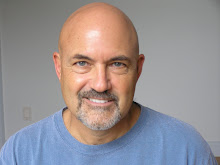I am reading a very anti-raw book called Catching Fire: How Cooking Made Us Human. I believe that it is important to hear all sides of an argument. I truly believe that a raw diet, or mostly raw diet, is far better for people and the planet, but I want to hear all the evidence on both sides. So I'm reading the other side to see if my beliefs hold up.
This book targets raw foodists directly. There is no mistake about it, the author, Richard Wrangham, goes after those of us who do not like to set our food on fire. I have no problem about that. Maybe he will convince me that I don't have to feel guilty when I stray and treat myself to a burger and fries. Hey, boiled lobster and butter is awesome. Just please make a reasonable, rational, realistic argument for it.
For me, Wrangham gets off on the wrong foot right in the introduction. He states that humans began cooking nearly 2 million years ago. However, there is absolutely no archeological evidence for this at all. Controlled fire, and we do not even know that this involved cooking, only begins to appear 800,000 years ago. I don't like writers who play loose with the facts.
The worst part of the introduction is that first he states that "Little change has occurred in human anatomy since the time of homo erectus almost 2 million years ago", then he says that cooking changed our brain size, our jaws, and our hairy bodies. Which is it? Has human anatomy changed or not?
Wrangham's inconsistencies are one thing, but he draws conclusions that just do not follow logically. For instance, he says that humans had small jaws and teeth, not made for eating meat. So we had to have cooked it. It never occurs to him that maybe humans just didn't eat meat. After all, our bodies were not designed to digest meat, cooked or raw, like they for eating fruits and vegetables.
He goes on to say that the strongest voices that argue for cooking being a core influence on human nature are students of food and eating. Duh? How stupid does he think his readers are?
The main point of the introduction, and possibly the book, is that cooking increases the amount of energy our bodies can obtain from food. I'm looking forward to seeing how he proves this. I think what he should be saying is that by cooking foods, particularly meats, humans had more food and energy available to them to survive. I could agree with that. But being able to process sugar cane and make twinkies also allows humans to extract more energy from nature. That doesn't make it more healthy.
I was hoping for a good challenge to my raw beliefs, but when Wrangham says that human bodies are biologically adapted to cooked foods like cow are adapted to eating grass he makes breatharians look good.
Wednesday, February 10, 2010
Subscribe to:
Post Comments (Atom)



No comments:
Post a Comment